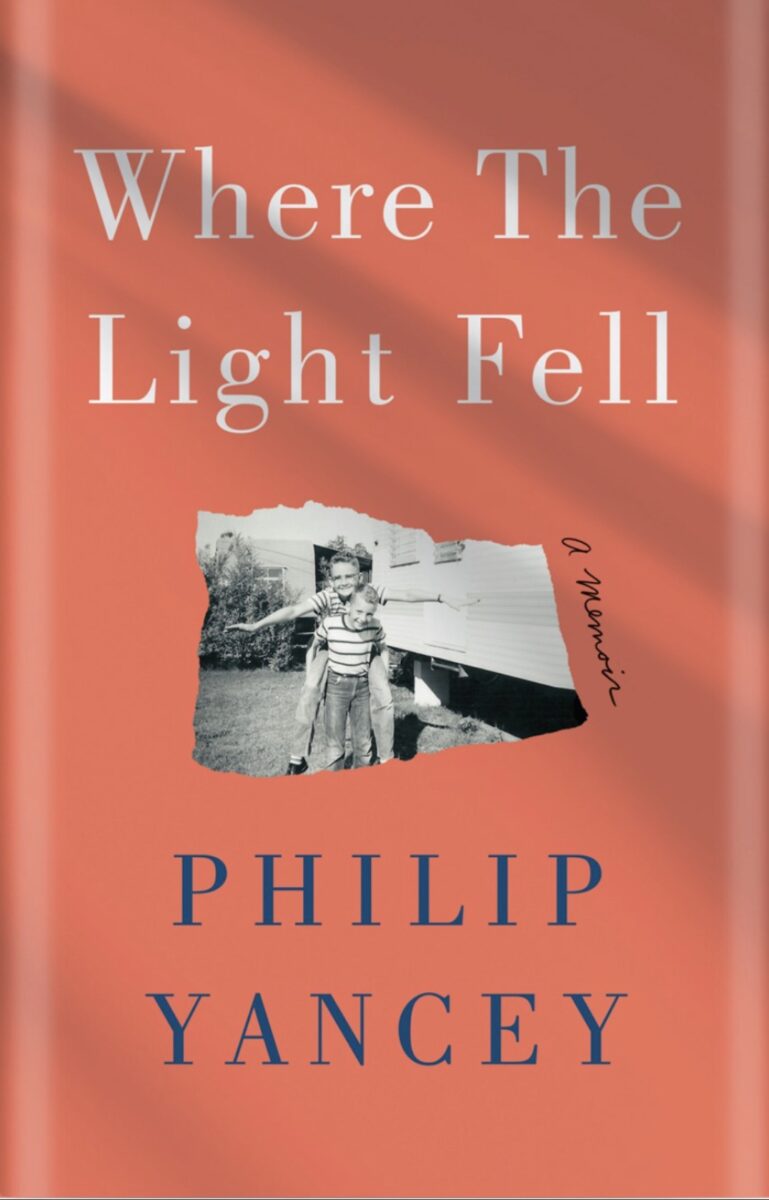When Our Losses Take Us To Healing: Philip Yancey & Mike Nappa
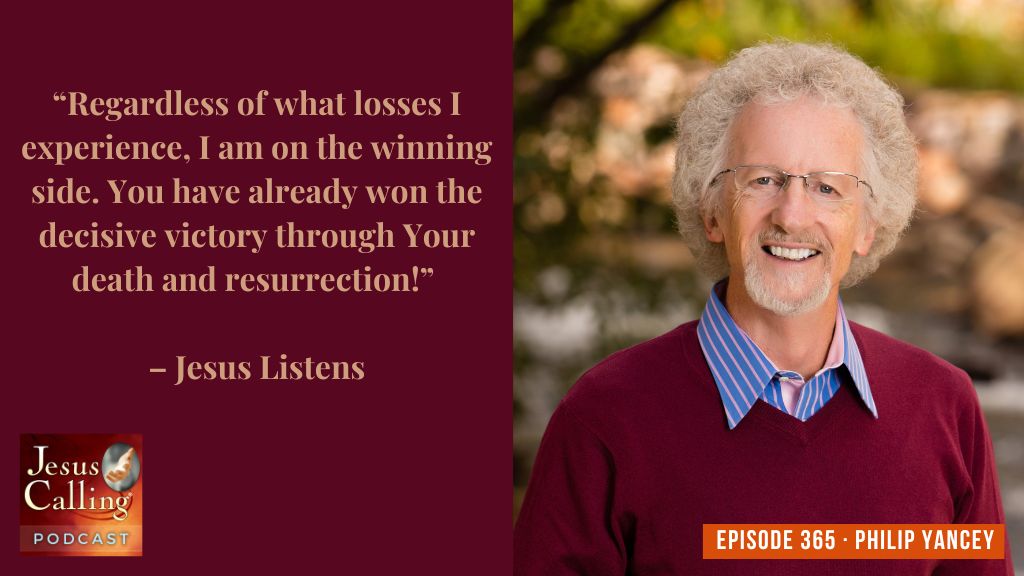
Philip Yancey: I have had times of unbelief. I’ve had times of struggle and challenge, and I’ve had times of suffering. Looking back now, they seem completely worth it. God has used all of those things to make me the person I am, and He can do that in you as well.
When Our Losses Take Us To Healing: Philip Yancey & Mike Nappa – Episode #365
Narrator: Welcome to the Jesus Calling Podcast. Even though it may not feel like it, grief can be a source of great hope. The way that we react against what is wrong comes from a deep desire for things to be made right. Our loss may actually lead to healing and restoration. The Bible assures us that better days are coming when God Himself will wipe every tear from our eyes. “There will be no more death or mourning or crying or pain,” it says in Revelation, “for the old order of things has passed away.” (Revelation 21:3-4)
Our guests this week have walked through deep and unexpected grief and what even seemed like unfair losses. Best-selling Christian author Philip Yancey uncovered a shocking secret about his father’s death while he was still in college, one that illuminated the sometimes overbearing religious convictions of his mother. Yancey shares how he dove into his family’s origins and how he ultimately found healing from what he calls “toxic faith.” After nearly thirty years of marriage, author Mike Nappa lost his dear wife, Amy, to cancer. Mike turned to scripture to help him get through the day and to cope with processing his grief—and even today, he sees how grief and joy can coexist.
Philip: My name is Philip Yancey. I began my career as an editor in magazines, but for forty years, I’ve been a freelance author of books. I worked a lot for Christianity Today magazine and have written about twenty-five books, including some like The Jesus I Never Knew, What’s So Amazing About Grace?, and now a memoir that tells my story called Where the Light Fell.
A Devastating Secret Revealed
The church I grew up in—it was a time where churches tended to be rather legalistic, especially in the South, where I was in the suburbs of Atlanta, Georgia.
Our church was trying to be a little more spiritual than other churches. For example, our church didn’t really approve of bowling because in some bowling alleys they served alcohol, so you couldn’t be caught in a bowling alley. And they didn’t really countenance roller skating because roller skating people looked like they were dancing. And you couldn’t read the Sunday paper because it’s Sunday and you couldn’t read the Monday paper because Sunday people had to work to produce the Monday paper.
And that gave me, as a young person, just this image that God was trying to keep us from enjoying life. And then the sermons in this particular church often revolved around hell and judgment, and I got that image of God as this scowling super cop. And I came away with the idea that the goal of life is to grimly survive just to make it through so you can get to heaven, and that’s when life really begins.

One of the first things that I noticed as a child was that not everyone who claims to speak for God does so, and I noticed that because I grew up without a father. My mother and father married, had two children pretty quickly, and I was the second. So they had been married three years and were planning to be missionaries in Africa. They had trained for that. They had a group of people—several thousand people—praying for them, agreeing to support them. And then my father got polio.
There was only one hospital at the time in Atlanta who could treat polio patients. And it was a charity hospital where you didn’t get particularly good care, but he went there because they had iron lungs. And so for several months he was in this lung, this metal canister basically that would breathe for him. The pressure would force his lungs to contract and expand, contract and expand. He couldn’t move. He was completely paralyzed.
But he would just lie there looking at the ceiling. There was no television. There was nothing. And then my mother, his young wife, would come in and sing to him and read to him and try to keep him company.
Well, a group of Christians, including my mother, believed that it couldn’t be God’s will for this young man who had great potential as a missionary to be paralyzed. Worse, to die. So they believed it was God’s will to take him out of that iron lung, and they did, and moved him to a little clinic. For a couple of days, it looked like he was experiencing some improvement, maybe he could move his left toe a little bit.
Those people believed he would be healed and they wanted to act on it. So they removed him from the iron lung. And after a couple of weeks, he died. That was a huge barrier for me when I discovered it as a teenager, because it was the secret that somewhat determined my life. We were raised in poverty and lived in a little trailer the whole time I was growing up, and it was because they believed they had God’s will—and they were wrong.
Looking for People Made Larger by Their Faith
Then I started noticing other things in my church, for example, my church was a very racist church. The civil rights movement was going on outside in Atlanta. Martin Luther King Jr. was the most famous citizen at the time, and my church opposed Martin Luther King Jr. In fact, they would call him names and they really believed that people of color were made inferior, to be servants to the white races. And I got a job as a teenager at the Center for Disease Control, as it was called, and one day I walked in to find my supervisor, who was a brilliant biochemist, and he was a black man. And a little bell went off inside me—ding, ding, ding—the church had lied to me. The church was wrong, and it started me on a quest to find out these things for myself, to explore my faith.
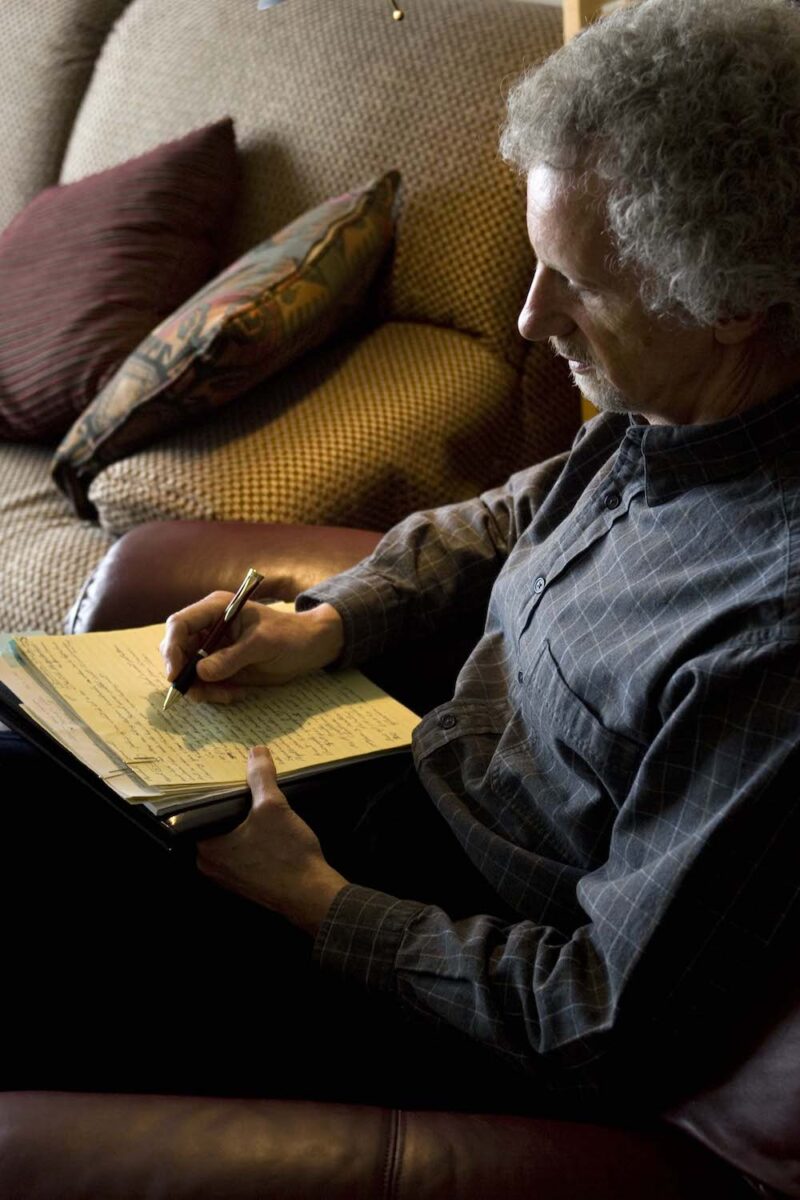
One of my quests, I suppose, as an author, is to find out what’s genuine and what’s fake. When you grow up in a church environment, it’s easy to learn how to behave, how to give a testimony, how to pray, how to do the things that look spiritual. And then one day you wake up and wonder, Is this just a learned behavior pattern that I have, or is it genuine? Am I really connecting to the God of the universe? These are the kinds of things that I explore. I went through a period where I rejected the church and just stayed away from it for a while.
“When you grow up in a church environment, it’s easy to learn how to behave, how to give a testimony, how to pray, how to do the things that look spiritual. And then one day you wake up and wonder, Is this just a learned behavior pattern that I have, or is it genuine? Am I really connecting to the God of the universe?“ – Philip Yancey
I ended up rather reluctantly at a Bible college, a rather conservative Bible college. I was an introvert and I processed things internally. Books were the way to open my windows to a larger world out there. I found it was okay to question. I found that a lot of the issues I struggled with, other people had struggled with as well. And I started looking for people who were made larger by their faith.
“I started looking for people who were made larger by their faith.“ – Philip Yancey
It only takes one person really to live that out for you to understand that this thing really works, that God has a reason why we’re here and God has a plan the way He wants us to be. I came to know a different God, a God of creativity and beauty and love.
Knowing the God of Grace and Love
I remember coming across a quote that I saw from G.K. Chesterton who said, “The worst moment for an atheist is when he feels a deep sense of gratitude and has no one to thank.” And that’s how I felt. I was experiencing the good things in the world, and I wanted to know the artist behind them, the One who created them.
Nature was always my refuge, a place where I would go and collect insects and just enjoy the great outdoors. We grew up listening to classical music and that was, again, a calming thing for me, and then eventually romantic love, those three things. And as I experienced each of those three things, I realized that these are good things. I want to know the person who made these things. I want to know where they came from. And the more I got to know the world, the more I realized that I had been given a tiny little slice that misrepresented God, that my church did some good things for me, but it did not represent the God that I have come to believe since.
Don’t just give up on God because of the way God may have been presented to you. It’s worth that quest to try to find who God really is and to find that God loves you. And God indeed does imagine a role for you on this earth that no one else has. That’s why we were created. We were created in God’s image to reflect something of God back to others.
“Don’t just give up on God because of the way God may have been presented to you. It’s worth that quest to try to find who God really is and to find that God loves you. And God indeed does imagine a role for you on this earth that no one else has. That’s why we were created. We were created in God’s image to reflect something of God back to others.” – Philip Yancey
I’m a writer and a lot of Christian books are written by experts, a theologian, a pastor. Well, I’m not an expert. I’m a journalist. And my stance is to represent the ordinary person in the pew.
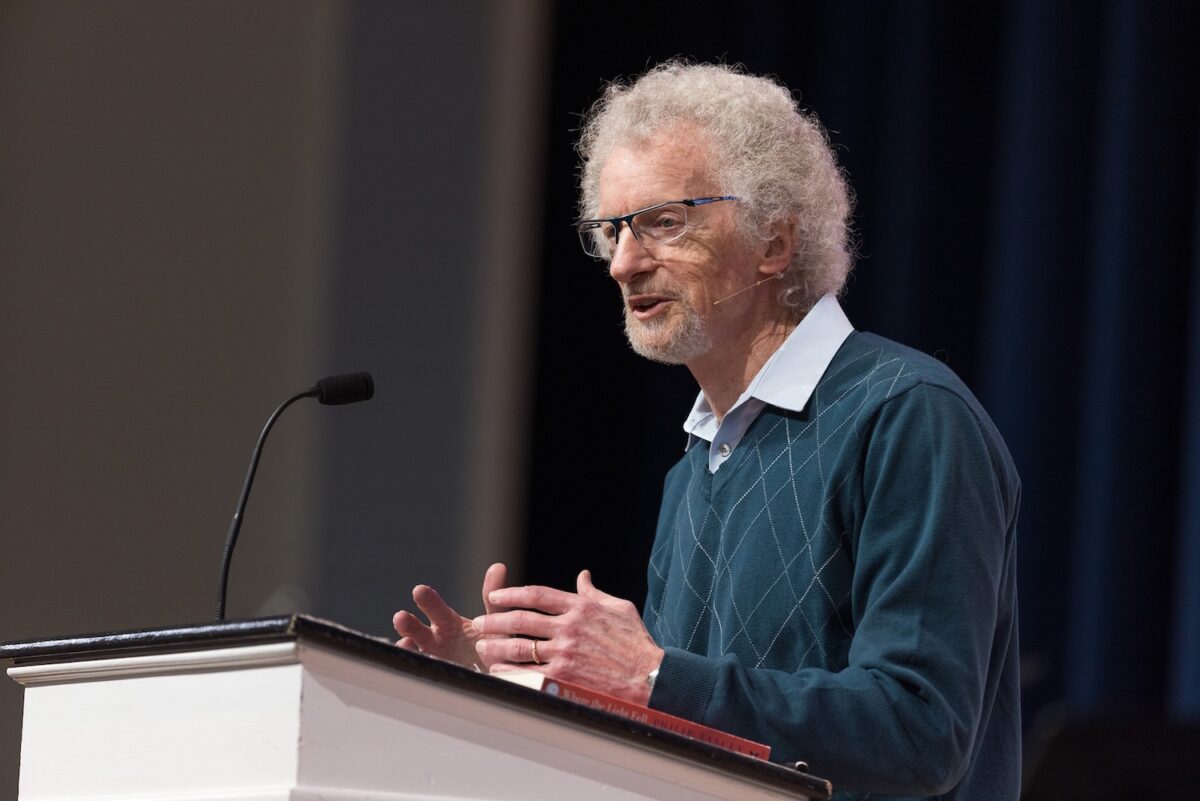
I’m often called to places of tragedy—Columbine High School, Virginia Tech, Newtown, Connecticut for the Sandy Hook shootings, Japan when the tsunami killed twenty-thousand people—places like that. My own faith is put to the test. From those who emerge, and from the lessons as a journalist, I can put together things that hopefully help other people. The people I most admire are people who live with difficulties and yet let God redeem them into something that makes them into a better person. And I see that pattern over and over.
There’s nothing that you can do to get God to love you more. No amount of spiritual calisthenics, no amount of trying to be more spiritual than everybody else—there’s nothing you can do for God to love you less.
“There’s nothing that you can do to get God to love you more. No amount of spiritual calisthenics, no amount of trying to be more spiritual than everybody else—there’s nothing you can do for God to love you less.” – Philip Yancey
I have learned that there are times when it’s a struggle to believe. We are living in a culture that tells us what matters is how much money you make, whether you’re a celebrity, how famous you are, or how you succeed in your career. And Jesus comes along and says, “That’s really not the most important thing at all. The most important thing is to be the person God made you to be.” And there are times when that’s difficult. There are times of dryness in the spiritual life where you wonder, Does God care? There are times of tragedy and there are times of joy.
When you look at the heroes of the Bible, they’re all deeply flawed, like David a murderer and adulterer. Moses is also a murderer. The apostle Paul, who was a human rights abuser, persecuted Christians, and yet God didn’t stop loving those people. In fact, they’re the giants of the faith. God is for us. God wants to remake us in a way that’s good for us.
God wants to restore us. God wants to give us a calling, a reason for being, a reason to live on this planet, and grace is the attitude that God has toward us all the time.
“God wants to remake us in a way that’s good for us. God wants to restore us. God wants to give us a calling, a reason for being, a reason to live on this planet, and grace is the attitude that God has toward us all the time.” – Philip Yancey
I meet with God first thing in the morning. Well, second thing. First thing, I make some coffee, and then I’m awake enough to meet with God, and it’s about an hour. I have a prayer list of people I’m concerned about and want to support in prayer. You know, I usually spend time reading, most of the time directly from the Bible, often other material, and sometimes I use different sources like Jesus Calling to focus my thoughts and especially to to give voice to my prayer. You know, there’s sometimes when you sit there and you just wonder, I don’t know what to pray today. And it helps to have a book that you can open up and say, “Well, God, make this my prayer.”
God delegates God’s work in the world to people like us. And part of prayer is listening just to ask God, “Open up something new today, some need that somebody has, a place that I can fill today.”
I’d like to close with a passage from Jesus Listens by Sarah Young, and it’s on the date of August 18th.
Awesome God,
Whenever my world is feeling like a scary place, I need to turn to You and find encouragement in Your Presence. I’m inspired by the example of David, who strengthened himself in the Lord when his men were threatening to stone him. Like David, I can find courage through remembering who You are— pondering Your awesome Power and Glory, delighting in Your unfailing Love. I rejoice in knowing I’m on an adventurous journey with You and my ultimate destination is heaven!
As I keep focusing on You and enjoying the rich relationship You offer, my fear gradually subsides. I will trust and not be afraid, for You are my Strength and my Song.
In Your matchless Name, Jesus,
Amen
Narrator: To learn more about Philip and his writing, please visit www.philipyancey.com, and be sure to check out the revised and updated version of his book, What’s So Amazing About Grace? coming this October.
Stay tuned to Mike Nappa’s story after a brief message.
Spreading Hope With Samaritan’s Purse
At Samaritan’s Purse, we bring spiritual and physical aid to hurting people around the world. We go into dangerous situations because in disaster and disease, in war, Jesus calls us to love our neighbor, to heal the sick, and feed the hungry, restore the broken. All who work and volunteer with Samaritan’s Purse follow the example of Jesus. We go to serve, not to be served. And we go in Jesus’ name. Join us at www.samaritanspurse.org.
Our next guest is a theologian and author of Reflections of the Grieving Soul, Mike Nappa. After losing the love of his life, Amy, Mike turned to scripture to find a way to cope with his grief, and learned how grief and joy could go hand in hand.
Mike Nappa: My name is Mike Nappa and I am an author and a practical theologian. I live in Colorado. I have spent most of my life working as an author and editor in Christian publishing, and before that I was a youth pastor at a large church in Southern California for a while, and then I transitioned from that into writing church resources as an editor, and then from that, into a full time career as a writer.
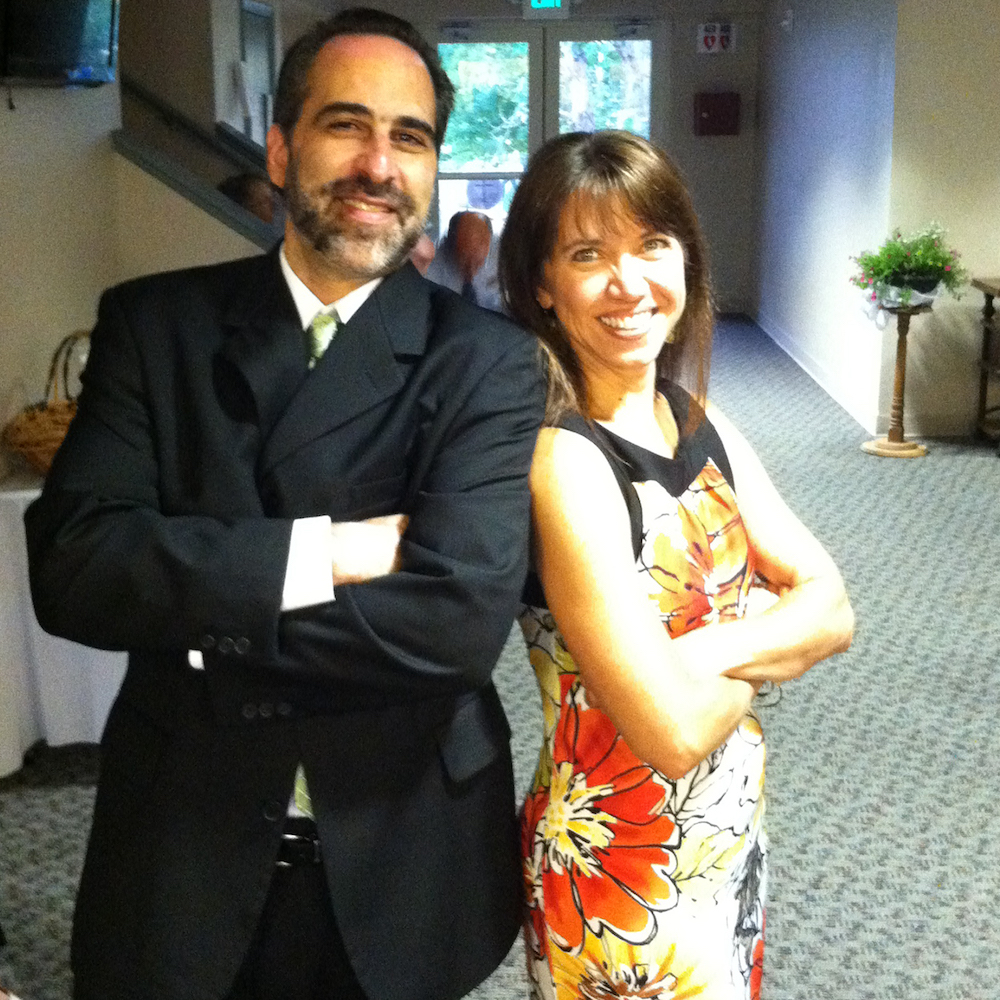
My wife, Amy and I were college sweethearts. On June 18th, ten days after our first date, I asked her to marry me and she said, “Ask my father.” So I had to call her father sight unseen and say, “Hey, I’ve been dating your daughter for ten days. Is it okay if I marry her?” Fortunately, he was gracious and he said, “Well, we trust Amy. And if she believes you’re the right man for her, then we believe it too.” So three and a half months later, we were married and we ended up being married just shy of thirty years.
The Loss of a Life Partner
I was working on a three book series of suspense novels, and I was writing the second novel. We decided that when I finished that second novel, we were going to go to Disneyland, that was going to be our treat. And so we made a schedule to go to Disneyland on August 13th of that year, and I finished the novel just in time. I turned it in on August 5th, and we started packing and getting ready to go. And then August 12th, the day before we were supposed to go, she had this kind of cough and just didn’t sound healthy. We thought she had some kind of infection, bacterial infection. And I said, “Well, you really should go to the doctor.” I forced her to go to the doctor before we left because I wanted her to get some medicine.
She went to the doctor and they were doing all kinds of tests, and at one point they were doing an ultrasound. And Amy said, “Now we need to make sure we get this done quickly because I’m going to Disneyland tomorrow.” And the lady laughed. She’s like, “I’ll get you out of here quick. In fact, if anything was wrong, I wouldn’t even let you go. So don’t worry about it, I’ll get you out here as fast as I can.” And then a few minutes later, the ultrasound technician said, “You know, I can’t let you go home yet. I need to go get a doctor.”
We found out later that day that she had cancer, and that it had spread from her uterus all the way across her abdomen, undetected. And the thing that makes me smile about that moment is that Amy didn’t cry when they told her she had cancer. She cried when I told her we had to cancel the trip to Disneyland.
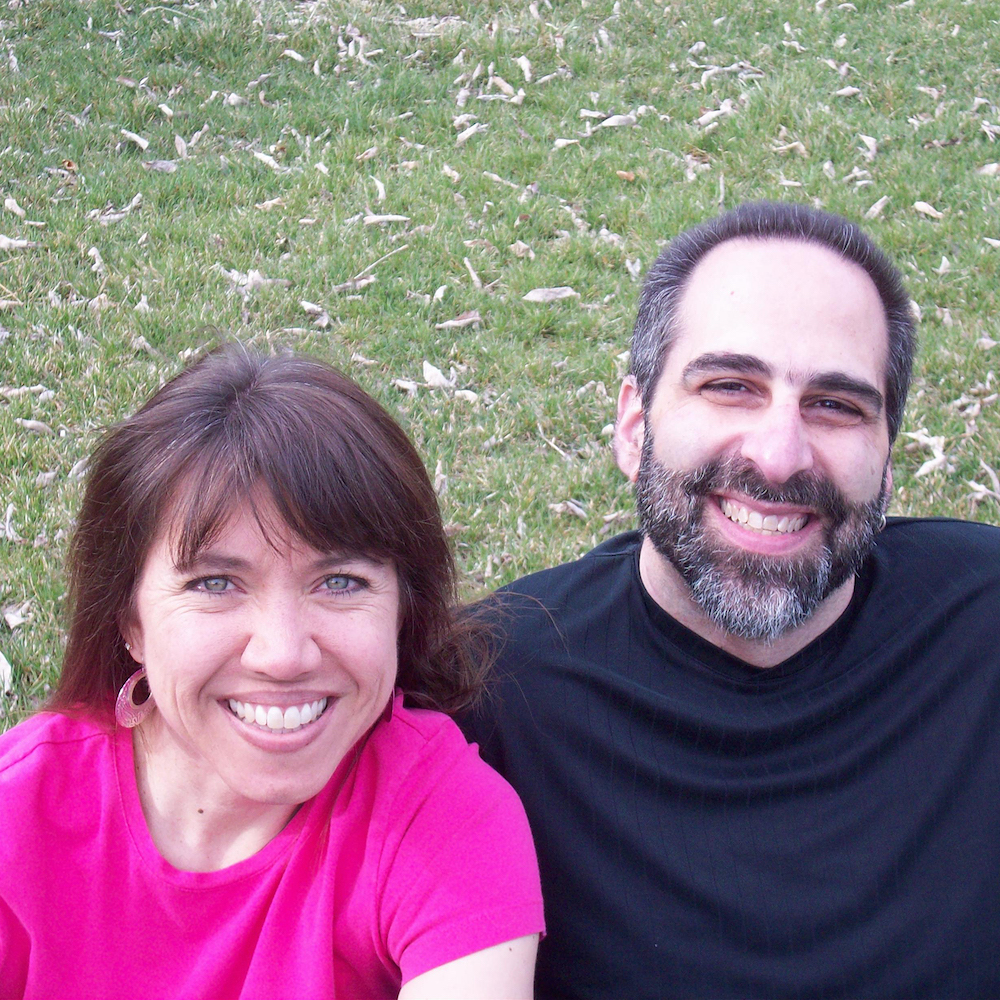
I spent the first eight months or so trying to help her live, and then the last five months trying to help her die. And she went through all the chemotherapy and there was progress and setbacks. And we finally found out that it was terminal and there was nothing else that could be done.
I remember there was a time near the end when we were in the hospice and we were really just sitting there waiting for her to die, and she was not able to eat. There was a break room a few doors down from her hospice room. I would go in there to eat so that it wouldn’t torture her with, you know, the smells of my food and stuff. And I remember I went in there one time and I came back and she said, “How was it?” And I said, “Good, but there’s some guy in there and he’s trying to be my friend, and I was just trying to get out of there as fast as I could.” She was indignant, she was like, “Mike, God does not bring people into your life by accident. You go back there, and if he wants to be your friend, you be his friend.” I said, “But really, all I want to do is sit here with you. I mean, our time is limited.” And she’s like, “It doesn’t matter. He still matters. You need to go be his friend.” And I was like, “Okay.”
So I embarrassingly walked back in the room with nothing to do or say, and he was still sitting there, and he greeted me. And so I sat down and we talked for a few minutes and I found out his wife was in the room next to my wife and she was also dying. And we had kind of this gallows friendship waiting for our wives to die. And he could say anything to me because my wife was in the same situation, and I could say anything to him because his wife was in the same situation.
His wife died I think about a day or two before Amy, and when his wife died, I was the first person that he told. He came to the room to tell me, and then when my wife died, he came to Amy’s funeral. And we’ve never seen each other since, but if Amy had not had kindness toward some strange guy that she never met, it would have been harder, I think, than it was.
What Heaven Might Look Like
When my wife was dying, people used to ask her what she thought heaven would be like, and she would just kind of smile and say, “I have absolutely no idea. I know what I would like there to be, but here’s what’s important to me about heaven: Jesus is there. That’s all I care about. That when I make it out of this life and into the next, I get to be with Him.” And I think that’s the value of our prayer, if we can get to the point where we say, “Of course we want and need things from you, Lord, but what we need most is just for You to be near.”
Her favorite verse in Psalm 16 was Psalm 16:8, which was, “Set the Lord continually before me because He’s at my right hand, I will not be shaken.” And I always thought that was a great verse, but what I didn’t understand was that that wasn’t just her favorite verse, that was her faith. And when she became ill and when she became sick, people used to say to me, “Your wife, she has such great faith.” And I realized by halfway through that, no, it’s just that she has the same faith, Psalm 16:8 faith. And now it’s been put in a spotlight on a hospital bed, whereas before it was just on the side of the stage, but it was her life, Psalm 16:8.
After she passed away, I was reading through some of her journals because I missed her and of course I found an entry in her journal where she had quoted Psalm 16:8. And I have Psalm 16:8 in her handwriting tattooed on my arm. And it’s just a reminder to me that great faith is in this idea that God is continually near me.
I understand that God is really who He said He was, just like I thought He was before, in the moments of great joy and in the moments of great sorrow. And He is always near in the moments of great joy, and when it gets hard, He doesn’t step back and run away. He’ll just stand there and stay with you.
“I understand that God is really who He said He was, just like I thought He was before, in the moments of great joy and in the moments of great sorrow. And He is always near in the moments of great joy, and when it gets hard, He doesn’t step back and run away. He’ll just stand there and stay with you.” – Mike Nappa
The Surprising Thing About Grief
What I found was when Amy died on September 11, 2016, there was about two weeks between her death and the funeral, and people—just a great cloud of friends and family gathered around me and supported me and grieved with me and helped me. And then we got to the funeral and it was a beautiful funeral.
But I found that after the funeral, I was expected to just move on and get over it. And people would say things to me like, “Amy would never want you to be sad for so long, so just put on a smile and get out there and take over.” But, what I discovered was it was no longer socially acceptable for me to be public with my grief, but I still had this grief.
So at one point I was just overwhelmed and I went onto my Facebook page and I said to my friends, “I need help. I need to know the scriptures that encourage you when you’re struggling. So if there’s any scripture that you like, that you can turn to, send it to me.” And they did. They sent me so many wonderful scriptures. And then Amy had left me a number of scriptures in her journals, and then of course, I had my own favorites as well. Finally, I took all these scriptures and I printed them out and I cut them up into little slips of paper. And I glued those slips of paper onto three by five cards.
I decided I was going to read one scripture every day for 100 days, just to see if they’d get me through the worst of what I was feeling. And so I started in the morning, I picked up a card, and I read that scripture, and I’d take that card with me where I was going. And I read it again later in the day, and I’d read it at lunch time, and I’d read it again in the afternoon, and then I’d read it at nighttime before bed.
And I just kept doing that every day, reading one scripture every day. And I still felt sorrow. But then I also began to feel a certain amount of hope. And I kept reading. And then one day I realized a year had gone by, and I was still reading these same 100 plus scriptures every day. I had meant to do it for only 100 days, and I just had forgotten and kept going. And in fact, now it’s nearly seven years since Amy passed away and I still have the stack of cards next to my bed, so I can pull one out and read it every day.
I think that grief is a natural and important part of life. And if we can take that grief and grieve well, then we can gain the benefit that comes from grief. There is a new texture, a new beauty to enter life through sorrow, and if we can not short circuit that, not try to stunt that, if we can actually grieve well, then maybe this grief will have value. It will have worth. There is a saying that I’m told is from Queen Elizabeth. She says that grief is the price we pay for love. So if we are grieving deeply, it means that we have loved deeply. And so that has a value, that has purpose. The grief that we have is not something to be thrown aside any more than love would be thrown aside. The grief that we have is something to visit and understand and take value and take benefit from.
“The grief that we have is not something to be thrown aside any more than love would be thrown aside. The grief that we have is something to visit and understand and take value and take benefit from.” – Mike Nappa

It’s okay to be sad, but you can also be happy even while you’re sad. I was visiting my son’s family and his two beautiful children. I was playing Jenga with my granddaughter. And as we’re playing, of course, the tower fell. And when it fell, she just let out these delighted peals of laughter. And I thought to myself, I feel so much joy hearing her laughter. And she looked at me and I looked in her eyes and she has these beautiful emerald green eyes, and they’re the exact same color as Amy’s eyes were. At the same moment when I was thinking, I’m so delighted to hear this child laugh, I also saw Amy’s eyes in her face and felt this deep, intense sorrow, longing for Amy, and thinking, Amy would love this moment. And then it struck me. I’m sitting here in this exact moment, I feel both great joy with the delight in my granddaughter’s laugh, but also limitless sorrow at the loss of my wife. How is it that I’m feeling both of these things at the same time?
I went home, and over the next several days, I went to scripture because that’s where I go when I have questions. And I started looking through scripture to find out if there was answers, and I came to the night before Christ was crucified at the Last Supper. And I saw Him speaking to His disciples and He said to them at one point, “I’m telling you these things so that my joy may be in you.” [John 15:11] And then within an hour, less than an hour later, He’s in the Garden of Gethsemane, and He says to them, “My soul is crushed with grief.” [Matthew 26:38] And I thought, Well here, that’s why I can feel both joy and sorrow, because that’s how He feels, these emotions. He has both joy and sorrow within the same hour of living His life here on Earth. This is how He can be a man of sorrows to us, but also His Spirit can bring to us the fruit of joy. And so the thing that surprised me then, as it does still today, is that joy and sorrow are not mutually exclusive. It is possible to grieve deeply and also feel great joy at the same time, within the same hour, in the same day or week or so on.
And I think this is okay. I think this reminds me that grief is not some terrible thing to be avoided, that I can feel that loss, still, of my wife, but I can also still play with my granddaughter and feel at the same time the joy of her laughter. I don’t have to be consumed by grief. It can just be part of who I am as I also experience joy and happiness.
“I don’t have to be consumed by grief. It can just be part of who I am as I also experience joy and happiness.” – Mike Nappa
Narrator: Mike closes with a reading from Jesus Listens, August 19th.
Jesus, my Redeemer,
I love to hear You speaking these words to me through Scripture: “I give eternal Life to you, and you will never perish; no one will snatch you out of My hand.” This is astonishingly good news! You have promised me a heavenly inheritance that can never perish, spoil, or fade.
Your gift of eternal Life provides a Light that keeps on shining—even during my darkest days. This brightness beckons me onward and protects me from discouragement. So I can refuse to let hard circumstances or the wickedness of the world drag me down. Instead, I’ll look ahead to the Glory that awaits me—sparkling in the distance, just beyond the horizon.
I know I’ll have to go through some deep waters on my journey toward heaven. But You have assured me: “When you pass through the waters, I will be with you. They will not sweep over you.” Help me to keep holding on to Your hand in trusting dependence—confident that You love me and that nothing will be able to separate me from You. Rather than dreading the challenging times ahead, I want to enjoy the adventure of journeying with You through every day of my life.
In Your strong, dependable Name,
Amen.
Narrator: To learn more about Mike Nappa, check out his new book, Reflections for the Grieving Soul at your favorite retailer.
If you’d like to hear more stories about coping with grief and loss, check out our interview with Eddie Montgomery.
Next week: Leslie Schilling
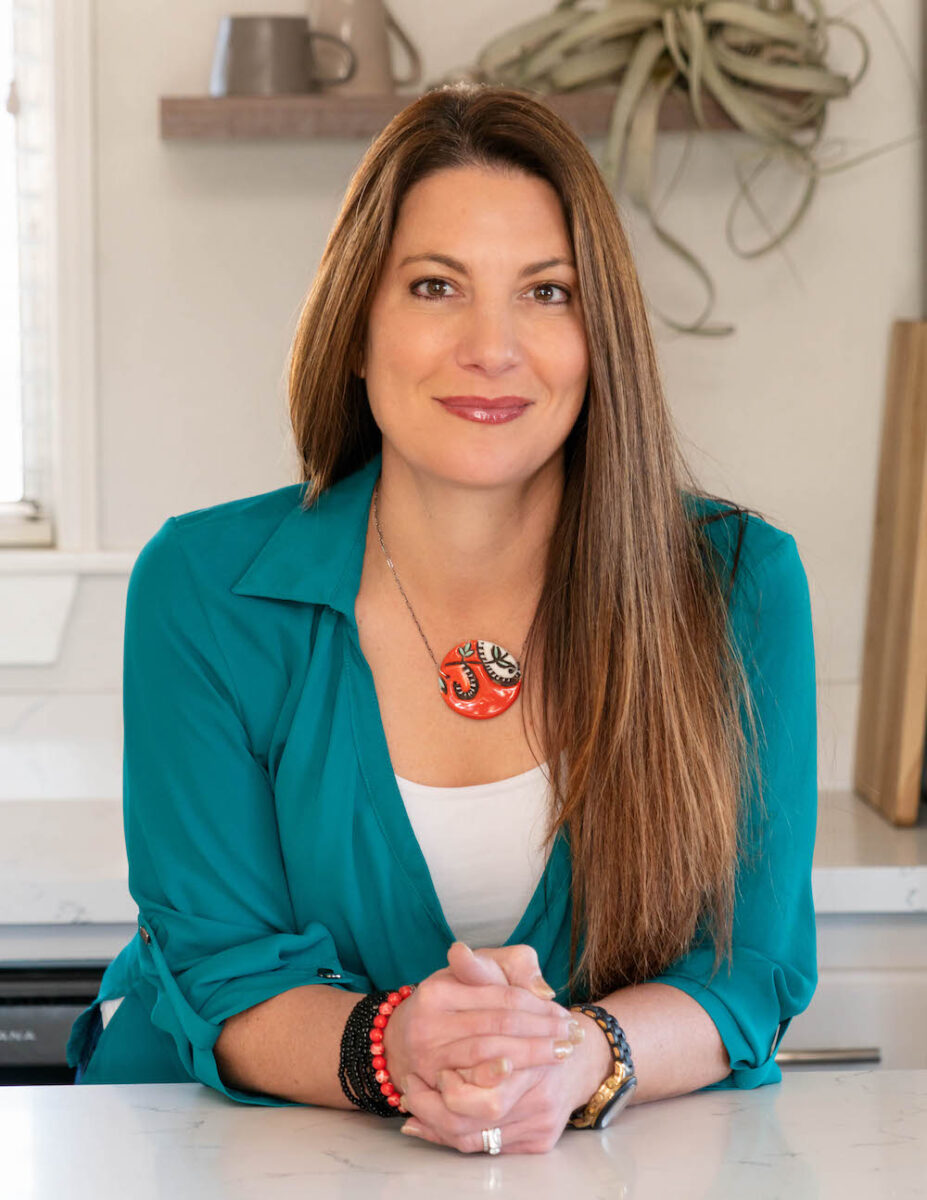
Next time on the Jesus Calling Podcast, we’ll hear from registered dietician and nutrition therapist Leslie Schilling, who shares how healthy behaviors have an impact on every piece of our well-being—from physical to spiritual.
Leslie Schilling: It’s important to have a healthy relationship with food so we can actually feed ourselves, so we can have the energy to go out and connect with others and take care of those we love around us and do our jobs. We have to be fed to live this life well.
